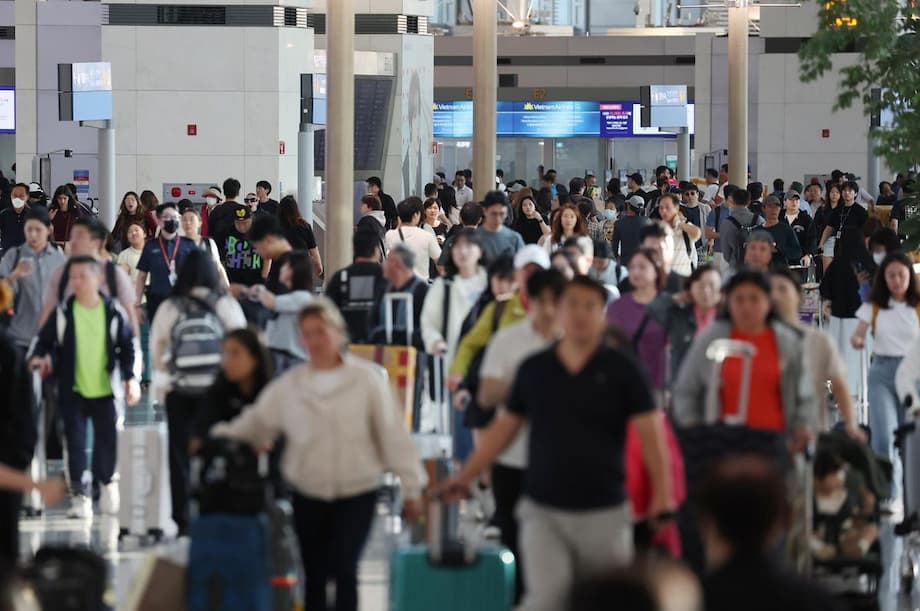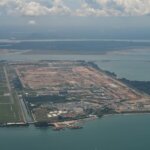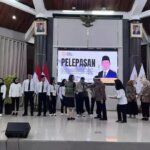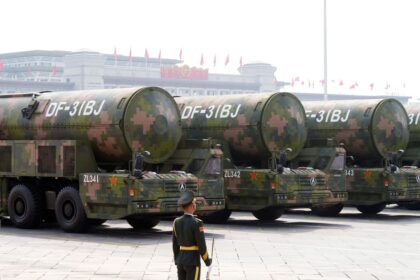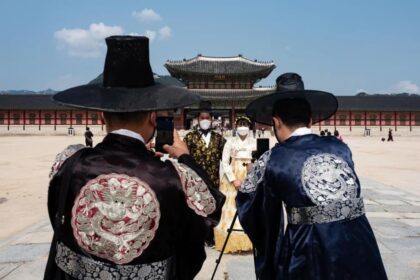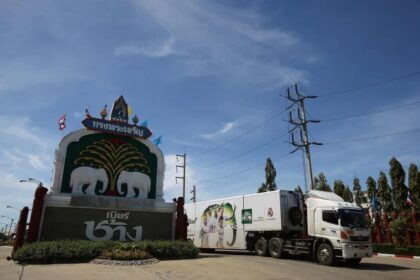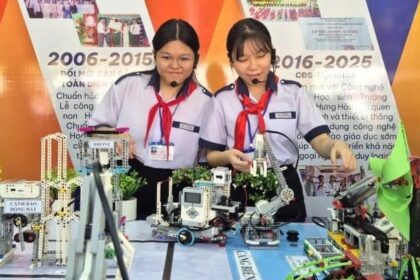Korea’s Monday Holiday Proposal: A New Era for Work-Life Balance?
South Korea is on the verge of a significant shift in its approach to public holidays. The government is reportedly considering the introduction of a comprehensive Monday holiday system, which would allow public holidays that fall on weekends to be observed on the following Monday. This move, already in practice in countries like Japan and the United States, aims to ensure that workers do not lose out on their entitled days off, potentially boosting domestic tourism and improving work-life balance. The proposal has sparked lively debate, with supporters and critics weighing in on its potential impact across Korean society.
- Korea’s Monday Holiday Proposal: A New Era for Work-Life Balance?
- How Does Korea’s Current Substitute Holiday System Work?
- Why Is the Monday Holiday System Being Proposed?
- Potential Benefits: Tourism, Productivity, and Social Well-Being
- Concerns and Criticisms: Economic and Operational Challenges
- International Comparisons: How Do Other Countries Handle Holidays?
- Broader Trends: Workation Visas and Changing Attitudes Toward Work
- Public Opinion and Next Steps
- In Summary
How Does Korea’s Current Substitute Holiday System Work?
South Korea already has a substitute holiday system in place, but it is not as extensive as those in some other countries. Traditionally, only a few major holidays—such as Lunar New Year (Seollal), Chuseok (the harvest festival), and Children’s Day—were eligible for substitution if they fell on weekends. However, in July 2021, the government expanded this system to cover all public holidays that land on weekends, providing employees with additional days off each year. This expansion was part of a broader effort to help the economy recover from the COVID-19 pandemic and to enhance employee well-being and productivity.
Under the current system, if a public holiday falls on a Saturday or Sunday, the next working day (usually Monday) becomes a substitute holiday. For example, in 2025, Independence Movement Day (March 1) falls on a Saturday, so the substitute holiday is observed on Monday, March 3. Similarly, when Children’s Day coincides with Buddha’s Birthday, the following Tuesday becomes a substitute holiday. These adjustments create opportunities for extended breaks and long weekends, which are highly valued by workers and families alike.
Recent Examples and Practical Impact
In 2025, South Koreans can look forward to several long weekends thanks to the substitute holiday system. Notably, October offers a rare seven-day holiday stretch, combining National Foundation Day, Chuseok, and Hangeul Day. Strategic use of annual leave can further extend these breaks, allowing for vacations of up to ten days. Such arrangements are increasingly popular as Koreans seek to maximize their time off for travel, rest, and family gatherings.
Why Is the Monday Holiday System Being Proposed?
The push for a formal Monday holiday system is rooted in several factors:
- Work-Life Balance: Ensuring that workers do not lose public holidays to weekends helps promote a healthier balance between work and personal life.
- Economic Stimulus: More predictable and frequent long weekends can boost domestic tourism, hospitality, and retail sectors, as people are more likely to travel or spend during extended breaks.
- International Alignment: Many developed countries, including Japan and the United States, have similar systems in place. Adopting a Monday holiday system would bring Korea in line with global standards and expectations.
Proponents argue that the change would not only benefit workers but also stimulate the economy by encouraging travel and leisure activities. The Hyundai Research Institute estimated that a single extra day off, such as the temporary holiday declared on August 17, 2020, could generate economic effects worth 4.2 trillion won (about $3.5 billion) by boosting domestic consumption.
Government Precedents and Temporary Holidays
South Korea has a history of designating temporary holidays to provide relief during challenging times. For instance, in August 2020, the government declared a one-off holiday to give workers a much-needed break amid the COVID-19 pandemic. President Moon Jae-in emphasized the importance of rest for people enduring the stresses of the pandemic, and the move was widely seen as a morale booster and a way to support domestic demand.
President Moon Jae-in explained, “The designation is intended to give a short but precious rest time to people tired from battling the virus. I hope it serves as a small comfort to people enduring inconveniences for the safety of everyone.”
Potential Benefits: Tourism, Productivity, and Social Well-Being
Advocates of the Monday holiday system highlight several potential benefits:
- Boosting Domestic Tourism: Long weekends encourage people to travel within the country, supporting local economies and cultural sites. During major holidays like Lunar New Year and Chuseok, millions of Koreans travel to visit family or tourist destinations, creating a surge in demand for transportation, accommodation, and related services.
- Improving Productivity and Well-Being: Regular breaks can help reduce burnout, improve mental health, and enhance overall productivity. Studies in other countries have shown that employees who have more predictable and frequent time off are generally happier and more engaged at work.
- Supporting Family and Social Life: Extended weekends provide valuable opportunities for families to spend time together, celebrate traditions, and participate in cultural activities. This is especially important in a society where long working hours are common and work-life balance is a persistent challenge.
Technology and Infrastructure: Managing Holiday Surges
With millions of people traveling during holidays, South Korea’s tech giants have developed sophisticated traffic prediction systems to help manage congestion. Companies like Kakao Mobility and SK Telecom use big data and real-time analytics to provide accurate travel time estimates, helping travelers plan their journeys more efficiently. These innovations are crucial for minimizing the stress and disruption associated with mass movements during holiday periods.
Chung Yeon-joo, manager at Kakao Mobility, noted, “Real-time navigation service is possible through data sent by average users and taxi drivers every minute, all day long.”
Such technological solutions are increasingly important as the country considers expanding its holiday system, ensuring that infrastructure can handle the increased demand.
Concerns and Criticisms: Economic and Operational Challenges
Despite the potential benefits, the Monday holiday proposal is not without its critics. Some business leaders and industry groups have expressed concerns about the possible disruptions to operations and the broader economic impact, particularly in sectors that cannot easily pause work for additional holidays.
- Business Disruption: Industries that rely on continuous operations, such as manufacturing, logistics, and healthcare, may face challenges in maintaining productivity during extended breaks. Small businesses, in particular, may struggle to absorb the costs of additional paid holidays.
- Essential Services: The strain on essential services, especially healthcare, becomes more pronounced during holidays. Recent events, such as the doctors’ strike coinciding with the Chuseok holiday, have highlighted the risks of reduced staffing and limited access to emergency care. In one tragic case, a woman in Busan died after first responders were unable to find a hospital with available doctors during the holiday period.
The South China Morning Post reported, “A South Korean woman became the latest casualty of a months-long doctors’ strike after first responders called 92 times and failed to find a hospital that could admit her for a serious heart condition during a major holiday.”
Such incidents underscore the need for careful planning and resource allocation to ensure that essential services remain accessible during extended holiday periods.
Balancing Economic Growth and Worker Rights
While the economic benefits of increased domestic tourism and consumption are clear, some experts caution that the gains may not be evenly distributed. Sectors that depend on continuous operations or international trade may experience losses due to reduced productivity or missed business opportunities. Policymakers will need to weigh these factors carefully as they consider expanding the Monday holiday system.
International Comparisons: How Do Other Countries Handle Holidays?
South Korea is not alone in grappling with the challenge of aligning public holidays with modern work patterns. Many countries have adopted systems that ensure workers do not lose holidays to weekends:
- Japan: The “Happy Monday” system moves several national holidays to Mondays, creating regular three-day weekends throughout the year. This approach has been credited with boosting domestic tourism and improving work-life balance.
- United States: While not all holidays are moved to Mondays, several—such as Memorial Day and Labor Day—are always observed on Mondays, creating predictable long weekends. There have also been proposals to make Election Day a federal holiday to increase voter turnout.
- OECD Countries: According to Pew Research Center, most advanced democracies hold national elections and major holidays on weekends or designate substitute holidays when they fall on non-working days. South Korea already makes Election Day a national holiday, setting it apart from countries like the U.S. where voting often takes place on a regular workday.
These international examples provide valuable lessons for Korea as it considers how best to structure its own holiday system.
Broader Trends: Workation Visas and Changing Attitudes Toward Work
The Monday holiday proposal is part of a broader shift in attitudes toward work and leisure in Korea. In recent years, the government has introduced policies to attract digital nomads and promote work-life balance. The new “workation” visa, launched in 2024, allows foreign nationals to live and work remotely in Korea for up to a year, reflecting the global trend toward more flexible working arrangements.
Such initiatives signal a recognition that traditional boundaries between work and leisure are becoming increasingly blurred. By providing more opportunities for rest and travel, Korea hopes to position itself as a modern, attractive destination for both domestic and international workers.
Public Opinion and Next Steps
The government has indicated that it will conduct further studies and gather public opinion before making a final decision on the Monday holiday system. Early indications suggest strong support among workers and families, who value the opportunity for more predictable and frequent breaks. However, business groups and essential service providers are likely to push for safeguards to minimize disruption and ensure continuity of critical operations.
As the debate continues, policymakers will need to balance the competing interests of economic growth, worker rights, and social well-being. The outcome will shape not only the rhythm of daily life in Korea but also the country’s broader approach to work, leisure, and national identity.
In Summary
- South Korea is considering a formal Monday holiday system to ensure public holidays falling on weekends are observed on the following Monday.
- The expanded substitute holiday system already provides additional days off, boosting work-life balance and domestic tourism.
- Proponents argue the change will improve well-being and stimulate the economy, while critics warn of potential disruptions to business and essential services.
- Recent incidents, such as healthcare shortages during holidays, highlight the need for careful planning.
- International models from Japan and the U.S. offer valuable lessons for Korea’s evolving holiday system.
- The government will seek public input and conduct further studies before making a final decision.


